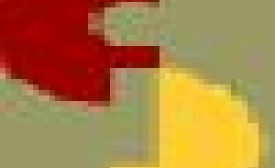Middle East
The peace process has been major news in almost all Arab media before, during and after direct negotiations started between the Palestinians and the Israelis. In broadsheet newspapers it is front page news; in broadcast media it usually comes first or second. The mood of the commentary and analysis was quite ambivalent.
Lebanon today witnessed one of the largest public diplomacy “events” staged by Iran, in the form of a formal state visit by President Mahmoud Ahmadinejad. While a state visit as such is not normally framed as a public diplomacy event, Ahmadinejad’s visit to Lebanon was marked by a degree of idiosyncrasy. This is not just because of Ahmadinejad himself (who excelled at the role of modest and earnest leader), but also because of the role played by Hizbullah in this public diplomacy event.
In his exclusive interview with the BBC Persian Television, President Obama responded not only to the Iranian president's remarks at the UN General Assembly, but also to some of the concerns of Iranians and Afghans with regards to his administration's foreign policy. Beyond the harsh rhetoric on who is to blame for 9/11, this appearance on BBC Persian has a few notable implications for U.S. public diplomacy apparatus in general and its policy towards Iran in particular.
Co-Author: Sam Schneider
The Saudi Arabian Pavilion: The Ultimate IMAX Experience
DUBLIN --- At a small but intense conference organized by Dublin City University last week, about 120 terrorism and media experts gathered to consider how terrorists use the Internet and other new media, and to ponder ways to counter their efforts.

APDS Blogger: John Nahas
While the controversy surrounding the proposed Muslim Community Center and Mosque at Ground Zero continues on in the U.S., another site of worship has been restored and opened in the most unlikely place—Beirut, Lebanon. The Magen Avraham Synagogue in Beirut’s Wadi Abu Jmil district reopened this past week after nearly three decades of being closed due to significant damage during the Lebanese civil war.







